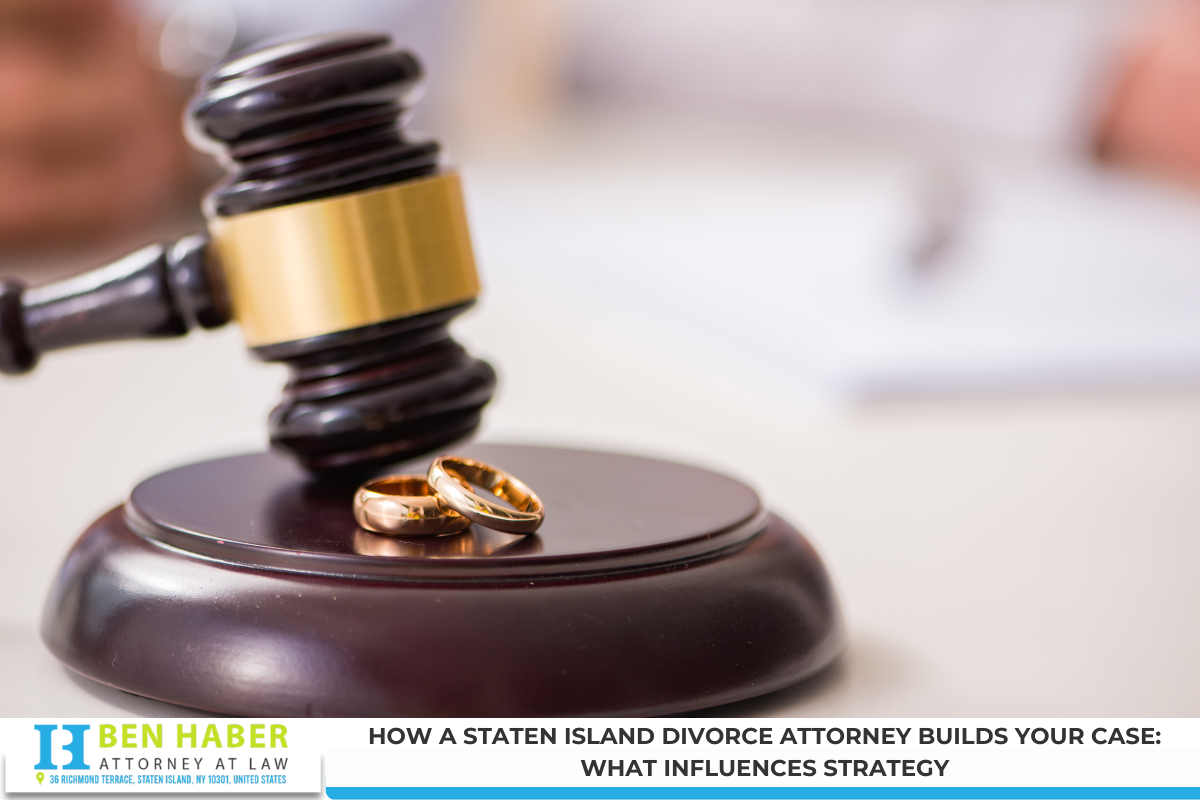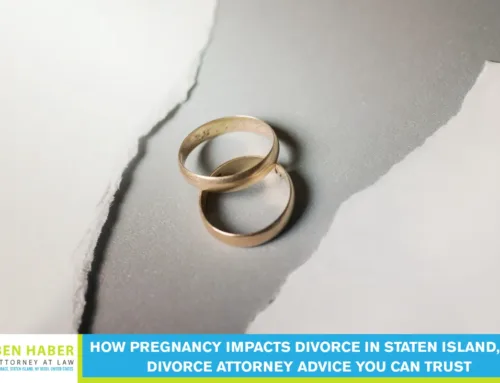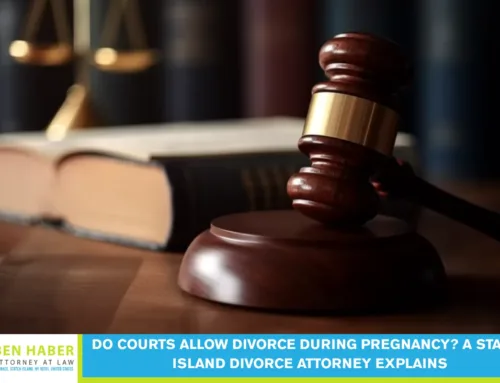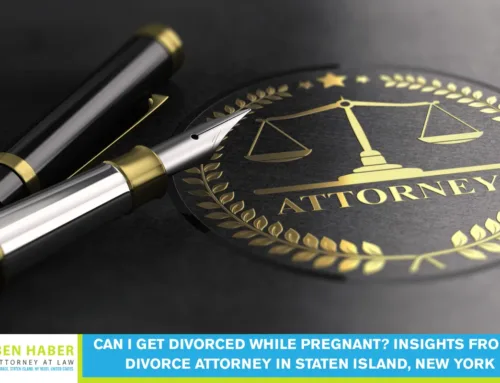When you hire a Staten Island divorce attorney, you’re not just getting someone to file paperwork-you’re choosing a legal guide who builds a clear strategy based on your life, your goals, and New York State laws. Whether you’re just starting the legal process or preparing for a trial, the way your divorce lawyer prepares your case makes a huge difference. Every step is designed to protect your rights, your family, and your future. Let’s walk through how a divorce attorney develops a personalized legal plan-and what influences that strategy the most.
Understanding Your Life: The First Step in Strategy
Setting Your Goals Early
A good divorce lawyer begins by learning about your life. Are you aiming for a peaceful separation, or do you need to prepare for a serious fight over child custody or property? These early conversations set the tone for your legal journey. Your legal counsel will consider:
- Whether the divorce is contested or uncontested
- If you’re open to mediation or prefer courtroom litigation
- How to protect your parental rights and financial stability
This early stage includes helping you organize documents, outline your concerns, and decide how involved you want to be in decisions about your children, marital assets, and spousal support.
Legal Foundations: How New York City Law Impacts Your Case

Key Family Law Factors
Staten Island, part of New York City, follows New York State divorce rules. That means your divorce attorney will focus on:
- Equitable distribution: This doesn’t mean a 50/50 split, but a fair one based on your situation
- Custody arrangements: Courts decide who becomes the custodial parent, and whether there is joint or sole child custody
- Spousal support: Also called alimony, this includes rehabilitative alimony or longer-term alimony payments
- Child support: Calculated based on income, number of children, and each parent’s role
Your family law attorney will review all these with you and explain how your decisions can affect the outcome.
Facts Matter: Building a Strong Foundation with Evidence
Financial and Asset Management
Your legal team will collect important documents like:
- Pay stubs, tax returns, and bank statements
- Lists of marital assets, like real estate holdings, retirement accounts, or investment portfolios
- Any debts, shared or personal
It’s essential to be honest. Hiding assets or leaving out debts can backfire in court.
Custody and Parenting Evidence
If child custody decisions are part of your case, your divorce lawyer will help you gather:
- Parenting schedules
- School records
- Communication logs
- Witness statements (like from teachers or counselors)
All of this supports your ability to provide what the court sees as the best interests of the child.
Choosing a Strategy That Matches Your Life

Legal Strategies and Negotiation Tactics
There’s no one-size-fits-all strategy. Your divorce attorney will tailor their approach to your emotional and financial needs. Some strategies include:
- Going to mediation to work out issues with less stress
- Using negotiation to settle matters like property division or spousal support
- Preparing for trial when the other party won’t compromise
They’ll also consider your and your spouse’s communication styles and whether professionals like psychologists or financial counselors are needed.
Why Local Experience Matters in Staten Island
A Staten Island divorce lawyer knows how local judges think, how long courtroom timelines typically run, and how certain types of cases are treated in the Richmond County Supreme Court. This knowledge can make all the difference in custody battles, complex property disputes, and child support cases.
Avoiding the Pitfalls That Can Derail Your Case
Your family law attorney will help you stay clear of common mistakes, such as:
- Letting emotions control your decisions
- Using your child to get back at your ex
- Not sharing full financial details
- Ignoring your legal counsel’s advice
All of these can hurt your credibility in court and make your case harder to win.
What It All Comes Down To: Your Story, Your Strategy

In the end, a divorce lawyer doesn’t just file papers-they build a roadmap. That plan depends on your goals, your family, your finances, and the realities of the legal process in New York City. Whether you’re navigating child custody, alimony, or dividing real estate, your divorce attorney is your advocate, guide, and strategist. If you’re thinking about divorce in Staten Island, talk to a divorce lawyer who understands the system, listens to your story, and knows how to protect your future.
Staten Island Divorce Attorney – Benjamin Haber

When facing a difficult divorce, you need a trusted divorce attorney who understands your goals, your family, and New York law. Benjamin Haber has decades of experience helping clients in Staten Island and surrounding areas navigate the challenges of child custody, property division, and spousal support. Whether through negotiation, mediation, or trial, Benjamin Haber builds strong, personalized strategies designed to protect your future. If you need a skilled, compassionate divorce lawyer who will fight for your best interests, call us today at (718) 442-0960 or fill out our contact form. Your case deserves clear answers, steady support, and experienced legal guidance from a respected Staten Island divorce attorney. Let’s build your case-together.
Frequently Asked Questions
1. How long does a contested divorce take in Staten Island?
A contested divorce in Staten Island can take anywhere from 9 months to over 2 years, depending on how complex the issues are. If both spouses can’t agree on major topics like child custody, property division, or spousal support, the case may need to go to trial, which adds time. Court schedules, lawyer availability, and how quickly each side responds also influence the timeline.
2. What’s the difference between equitable distribution and 50/50 property division?
Equitable distribution is the law in New York State, including Staten Island. It means that marital assets are divided fairly-not necessarily equally. A judge considers things like each spouse’s income, contributions to the marriage, needs after divorce, and real estate or retirement funds involved. It’s not a straight 50/50 split unless that’s what the court decides is fair.
3. Can I get sole custody if my spouse has a history of addiction?
Yes, it’s possible. The court looks at what’s in the best interests of the child. If your spouse’s addiction affects their ability to parent safely and consistently, the judge may award you sole custody. You’ll need solid evidence-like police reports, rehab records, or witness testimony. The court may also order supervised visitation or require your spouse to attend treatment before granting parental rights.
4. Is it better to settle or go to trial in a New York divorce?
Most people benefit from settling through negotiation or mediation, especially when they want more control over the outcome. Trials can be stressful, expensive, and public. However, if your spouse refuses to compromise or hides assets, your divorce attorney may recommend going to trial to protect your rights. The choice depends on your goals and how cooperative both sides are.
5. Do I need a Staten Island-based attorney, or can I hire someone from another borough?
While you can hire a divorce lawyer from another borough, it’s usually better to work with a Staten Island divorce attorney. Local attorneys know the Richmond County court system, local judges, and courtroom procedures. That insight helps shape better strategies and smoother communication with the court.
6. How does spousal misconduct influence alimony or asset division in NY?
In New York State, misconduct like abuse, financial control, or infidelity doesn’t automatically affect spousal support or property division. But in serious cases-especially involving economic abuse or violence-the court may consider it when deciding on alimony or dividing marital assets. Your legal counsel will help determine how much this might matter in your case.
7. What happens if my spouse hides assets during the divorce?
Hiding assets is illegal. If discovered, the court can impose fines, award a larger share of the property to the honest spouse, or even reopen the case after it’s closed. Your divorce attorney may work with financial experts to uncover hidden investment portfolios, retirement accounts, or real estate holdings. Full financial disclosure is required in every divorce.
8. What role do parenting coordinators play in custody cases?
A parenting coordinator helps parents manage disagreements over custody arrangements, especially in high-conflict cases. They don’t replace a judge, but they assist with day-to-day parenting decisions and communication problems. In Staten Island courts, they are sometimes appointed in tough custody battles to reduce tension and keep the child’s needs front and center.
9. Are divorce mediation outcomes legally binding in New York?
Yes. If you reach an agreement through mediation and both parties sign the document (often called a settlement agreement), it becomes legally binding once filed with the court and approved by a judge. This can be a faster, less expensive way to handle divorce, especially when children or complex marital assets are involved.
10. How much does a divorce lawyer in Staten Island typically charge?
Divorce lawyer fees in Staten Island vary depending on experience, the complexity of your case, and whether the divorce is contested. On average:
- Hourly rates: $250-$500/hour
- Flat fees (for simple, uncontested cases): $2,000-$5,000
- Contested divorce costs: $10,000-$30,000 or more
You can ask your legal counsel for a clear breakdown of fees during your first consultation.






